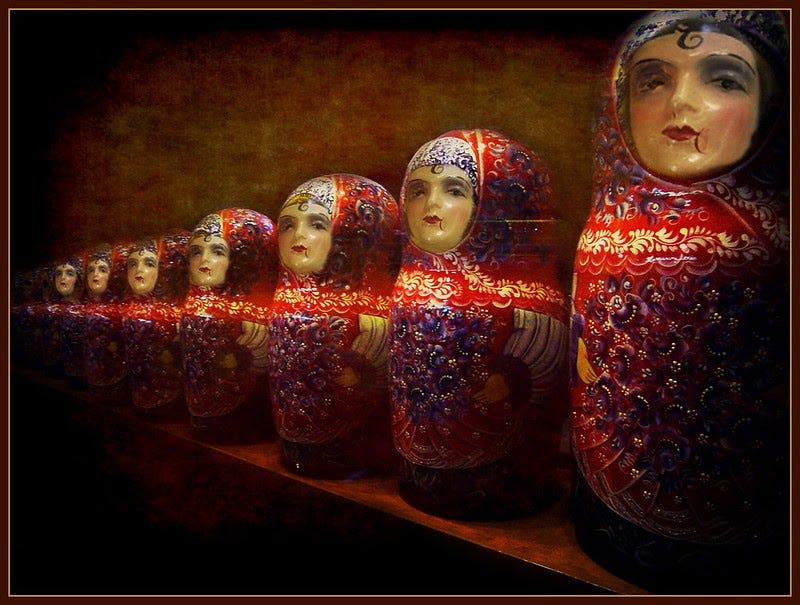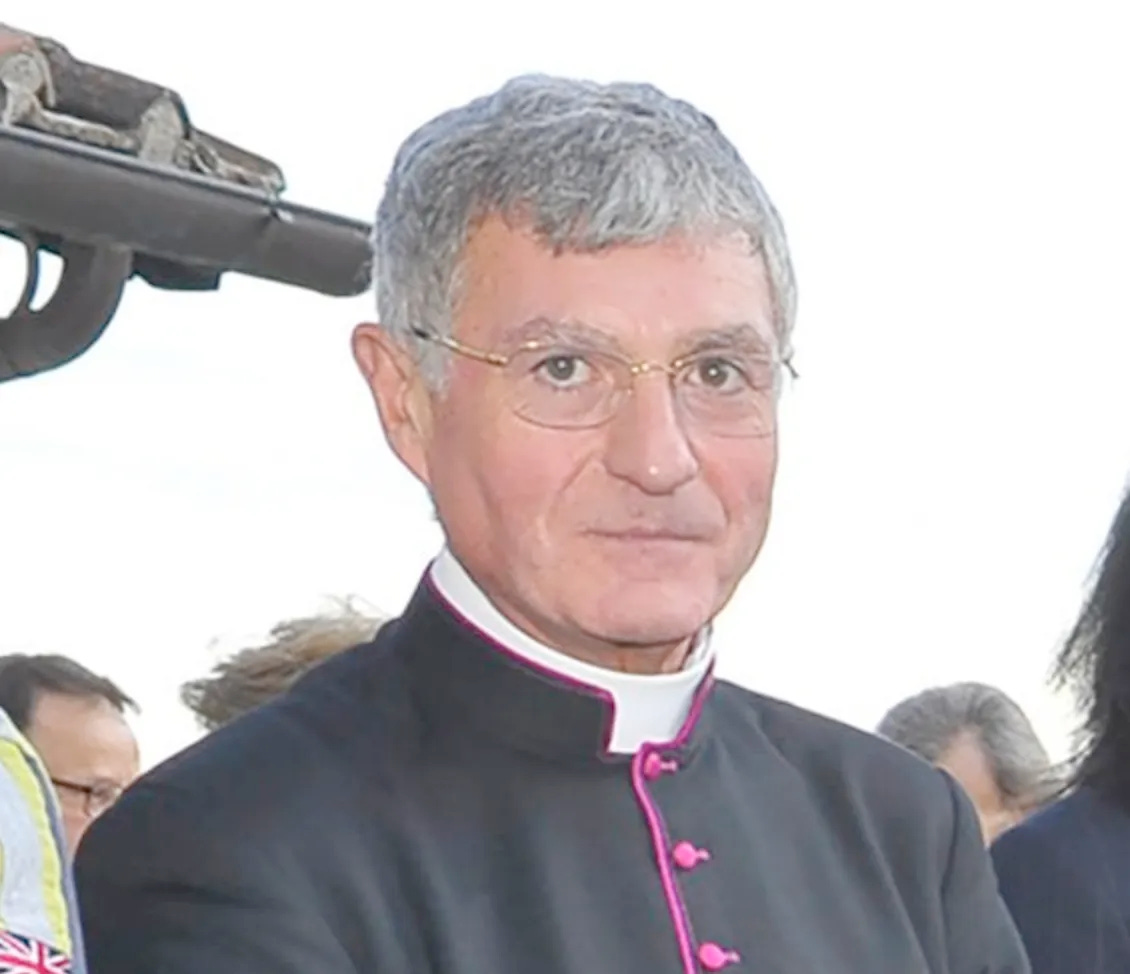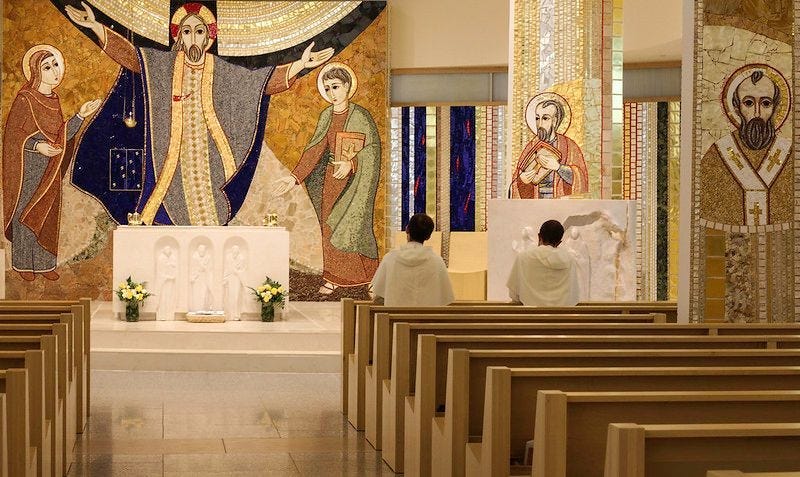Happy Friday friends,
Quick links
Before the concluding session of the Synod of Bishops, at the Vatican in 2023, there will be periods of local, regional, and then continental synodal processes. Sort of like a Russian doll, but with synods.
Many have been wondering if Rome can forestall the conclusion of the controversial German “synodal way” before it provokes a definitive breach with universal teaching and discipline, and they have hoped the 2023 meeting would be able to bat back what Pope Francis has already denounced as the flawed concept of synodality operating in Germany.
Many will now wonder if opening a global synodal process now, before the pope has set clear boundaries on what is and is not up for discussion, isn’t opening a Pandora’s box. We will see.
—
It’s Pentecost this weekend, and to get your fire going, we at The Pillar have put together a list of some light Pentecost reading and listening ahead of the big day. I didn’t know about the “Kneeling Prayers” before we published this. Read up.
—
Last Saturday, protestors arrived outside the chancery of the Ukranian Catholic Eparchy of Toronto to protest a move by the bishop-administrator to suspend a popular priest from ministry. Bishop Bryan Bayda met with the group and spoke with them about their concerns, talking and listening for more than an hour.
That seemed like a bold move to us, so we asked him for an interview.
—
This week saw a few new episodes drop in the Vatican’s own soap opera, which I have taken to calling “As the Money Burns.”
Returning character Gianluigi Torzi appeared in Westminster Magistrates Court in London for a bail hearing, ahead of a decision on extraditing him back to Italy to face charges of money laundering, tax evasion and so on, before, hopefully, then being mailed back across the Tiber to the Vatican, where there remains the unresolved issue of his having skipped bail last year on similar charges.
Perhaps being caught up on Mr. Torzi’s previous bail-skipping exploits, UK Judge Paul Goldspring set the bail at just over $1.5m, and said Torzi wouldn’t be released until the money arrived. He also ordered Torzi to surrender his passports.
The UK judge also observed that, while Torzi might not have a million quid “in your back pocket,” he very likely had it somewhere close to hand, and noted Torzi lived in a house worth $23 million, with the rent paid by a trust. I’m sure that’s all normal and fine.
—
As it happens, her area of special expertise is real estate transfers and contracts. I won’t insult your intelligence by spelling out what that means for a likely trial in the coming months.
—
Zooming out of Vatican finances, for all his jokes about lawyers and legalists, Pope Francis has actually turned into something of a prolific legislator as pope.
This week, some friends in Rome told us they were expecting next month to see the final promulgation of a new constitution for the Roman curia, Evangelium Praedicate, together with a new penal code for the Code of Canon Law.
Despite numerous delays for both projects, it does seem very much a question of “when,” not “if,” these reforms come into law, with friends in Rome predicting a “night of the long knives” for several curial cardinals when they do.
Senatorial incoherence
The ongoing debate about the U.S. bishops, and whether they should have a conversation in June about Eucharistic coherence, was made just that little bit more incoherent Wednesday thanks to the intervention of Tim Kaine, junior senator from the Commonwealth of Virginia.
The senator, who is Catholic and a forthright proponent of legal abortion, offered his thoughts on the sacramental economy this week, framed within his opposition to the absurd strawman that the USCCB leadership want to debate imposing a national policy on denying pro-abortion Catholics Communion.
To be clear: no such plan exists, or has ever been suggested by the USCCB, and it would be beyond the authority of the conference to try it.
Though, even in insisting that the bishops in conference cannot make such a rule, (which they cannot, and are not seeking to) the senator defended the idea, warning that unless the bishops are prevented from debating the topic of reception of Communion at all, individual bishops might be inspired to “freelance and deny Communion in their own dioceses” to people like him.
Kaine’s presentation of sacramental theology and Eucharistic worthiness is, as perhaps one would expect from a career politician with a vested interest to defend, neither especially accurate nor well informed.
His reasoning is, more or less explicitly, derived from a reading of some of the words of the Eucharistic liturgy through the lens of a sixth grader’s sacramental formation, which, to be fair, may be all he has to work with.
His argument boils down to the conclusion that everyone is a sinner, including bishops and priests, and, therefore, singling any one class of sinner (obstinate and manifest grave sinners, for example, though he doesn’t use those terms) “would be much more political act than expression of faith.”
Kaine’s intervention into the bishops’ ongoing debate about producing a document on Eucharistic coherence, meant to express universal principles to help individual bishops make individual decisions, seems unlikely to carry much weight in episcopal discussions.
It is, however, indicative of the kind of reasoning many members of the laity might find convincing, absent a clear explanation of the spiritual harm a person can do themselves by receiving Communion in a state of grave sin. It is exactly this kind of unformed and uninformed cod-theology which the U.S. bishops could address in the kind of “extensive and serene” debate called for by Cardinal Ladaria of the CDF in a recent letter to them, and which they are slated to begin at their June meeting.
Royally bonkers
Rivaling, dare I say comfortably passing, Sen. Kaine in the “I’m not sure this is your specialist subject” stakes this week is His Royal Highness, the Duke of Sussex, who has some thoughts about the United States Constitution.

Speaking on the appropriately titled Armchair Expert podcast, Prince Harry, or Hank, as I am sure he prefers to be known these days, decided to weigh in on the subject of the First Amendment, which he described as “bonkers.”
It takes an heroic lack of self-awareness to be a British royal in the United States and start in on the Bill of Rights.
I’ve often bridled at the American founding myth’s undue fixation on King George III. He had a Parliament, you know; one we were rather keen to get representation in, because it was the place passing all those taxes. The king wasn’t really “reigning” in the sense Americans like to imagine he was.
Still, the sight of an indolent princeling, swollen with Netflix millions and swanning about Los Angeles recovering “his truth” after an arduous life of ribbon-cutting, opining on the insanity of the first freedoms of the republic is enough to make me buy tickets to Hamilton.
Hank has also announced he’s heading back to Oprah’s couch for a further series of chats which will, I am sure, be relentlessly shoved down our throats like so much simpering celebrity gavage.
I’m all for free speech, but even the most hardened Jeffersonian would begin to think warmly of Adams’ Alien and Sedition Act.
See you next week, and don’t tread on me.
Ed. Condon
Editor
The Pillar





